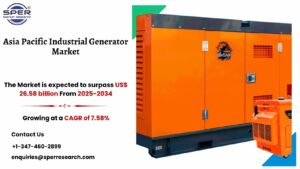Indonesia Modular Kitchen Market Growth 2023- By COVID-19 Impact on Industry Trends, Business Challenges, Investment Opportunities and Future Competition Report 2033: SPER Market Research

A modular kitchen is a modern, innovative design that combines pre-made cabinets, modules, and appliances in standard sizes for efficient storage solutions. It optimizes space utilization, enhances functionality, and incorporates aesthetic appeal. Modular units offer flexibility, allowing homeowners to personalize their spaces with materials, finishes, colours, and accessories. Modern features like built-in appliances and smart storage systems enhance cooking and food preparation, making the kitchen a versatile and efficient space.
According to SPER market research, ‘Indonesia Modular Kitchen Market Size- By Product, By Type, By Raw Material, By Distribution Channel, By Layout, By Components, By End User, By Construction- Regional Outlook, Competitive Strategies and Segment Forecast to 2033’ state that the Indonesia Modular Kitchen Market is predicted to reach USD XX billion by 2033 with a CAGR of XX%.
The modular kitchen market in Indonesia is growing due to changing lifestyles, urbanization, and international design influences. Consumers seek functional, aesthetically pleasing spaces, while urbanization and shrinking living spaces demand efficient and space-saving solutions. Western lifestyles and exposure to international design trends also contribute to the popularity of modular kitchens. Convenience and time-saving features, such as pre-made components and standardized sizing, appeal to busy professionals. Technology-driven appliances and smart solutions, such as built-in appliances, touch-panel controls, and intelligent storage systems, further enhance the functionality and user experience of modular kitchens.
The modular kitchen market in Indonesia faces challenges such as affordability, lack of awareness, skilled installation services, customization options, and limited supply chains. These factors hinder the market’s growth and success. Adequate education on modular kitchens’ benefits, skilled professionals, and reliable installation services are crucial for adoption. Additionally, customization and design limitations limit the ability to fully tailor the kitchen to individual preferences. Access to high-quality components and materials is also a challenge in certain regions. Addressing these challenges is essential for the continued success of the modular kitchen market in Indonesia.
Request For Free Sample Report @ https://www.sperresearch.com/report-store/indonesia-modular-kitchen-market.aspx?sample=1
In addition, The COVID-19 pandemic significantly impacted the modular kitchen market in Indonesia, causing supply chain disruptions, consumer behaviour, and purchasing patterns. The decline in consumer confidence and disposable incomes led to a slowdown in kitchen renovation and remodelling projects. Lockdowns and social distancing measures also impacted sales and installation processes. However, the pandemic also highlighted the importance of functional and hygienic kitchen spaces, with increased awareness of cleanliness and sanitation driving demand for modular kitchens. The shift towards remote work and versatile spaces created opportunities for modular kitchen providers, with workstations, additional storage, and adaptable layouts becoming more popular. The industry is expected to adapt and innovate to meet the demands of a post-pandemic market.
Overall, the Indonesia’s Modular Kitchen Market is expected to adapt and innovate to meet changing consumer needs and preferences. Modern kitchen demand surges due to lifestyle changes, disposable incomes, urbanization, limited living spaces, and modular design trends. Additionally, some of the market key players are Degrees South, Dwira Jepara, Eidai, Industries Indonesia, Integra Indonesia Kitchen and Bathroom Cabinetry, Oppein Furindo, PA Kitchen cabinets, Others.
Indonesia Modular Kitchen Market Segmentation:
The SPER Market Research report seeks to give market dynamics, demand, and supply forecasts for the years up to 2033. This report contains statistics on product type segment growth estimates and forecasts.
By Product: Based on the Product, Indonesia Modular Kitchen Market is segmented as; Floor Cabinet, Wall Cabinets, Tall Storage Cabinets, Others.
By Type: Based on the Type, Indonesia Modular Kitchen Market is segmented as; Artificial Stone, Fire Resistance Board, Natural Stone, Stainless Steel, Others.
By Raw Material: Based on the Raw Material, Indonesia Modular Kitchen Market is segmented as; Fiber/Plastic, Metal, Wood, Others.
By Distribution Channel: Based on the Distribution Channel, Indonesia Modular Kitchen Market is segmented as; Offline, Online.
By Layout: Based on the Layout, Indonesia Modular Kitchen Market is segmented as; G-Shaped, Island Kitchen, L-Shaped Layout, Parallel Layout, Straight Layout, U-Shaped Layout.
By Components: Based on the Components, Indonesia Modular Kitchen Market is segmented as; Appliances, Cabinets, Faucets, Lighting, Sinks, Storage Units, Worktop, Others.
By End User: Based on the End User, Indonesia Modular Kitchen Market is segmented as; Commercial, Residential.
By Construction: Based on the Construction, Indonesia Modular Kitchen Market is segmented as; New Construction, Renovation, Repair.
By Region: This report also provides the data for key regional segments of Java, Kalimantan, Sulawesi, Sumatra, Others.
This study also encompasses various drivers and restraining factors of this market for the forecast period. Various growth opportunities are also discussed in the report.
For More Information, refer to below link:-
Indonesia Modular Kitchen Market Future Growth
Related Reports:
Follow Us –
LinkedIn | Instagram | Facebook | Twitter
Contact Us:
Sara Lopes, Business Consultant – U.S.A.
SPER Market Research
+1-347-460-2899





